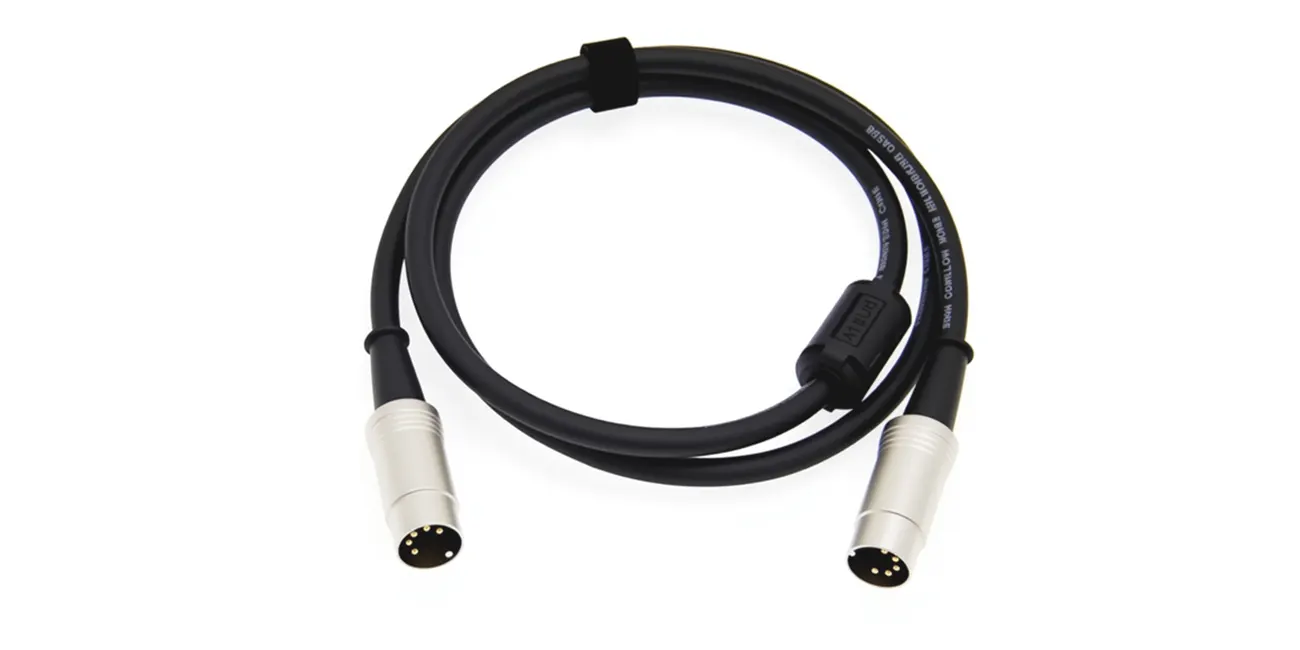
By quanyu lee
2025-08-21 02:10:38
MIDI Cable Guide: How It Works, Types, and Custom Solutions
MIDI cables are a crucial connection tool in music production and electronic device communication.
In practical applications, their core function is to facilitate information exchange between different devices; specifically, they enable electronic instruments, synthesizers, drum machines, and computers to establish connections and transfer data. It's important to understand that these cables don't transmit direct sound signals, but rather the command information generated during performance (such as note selection and playing velocity).
Understanding this helps us more clearly understand the fundamental role of the MIDI system in music creation.
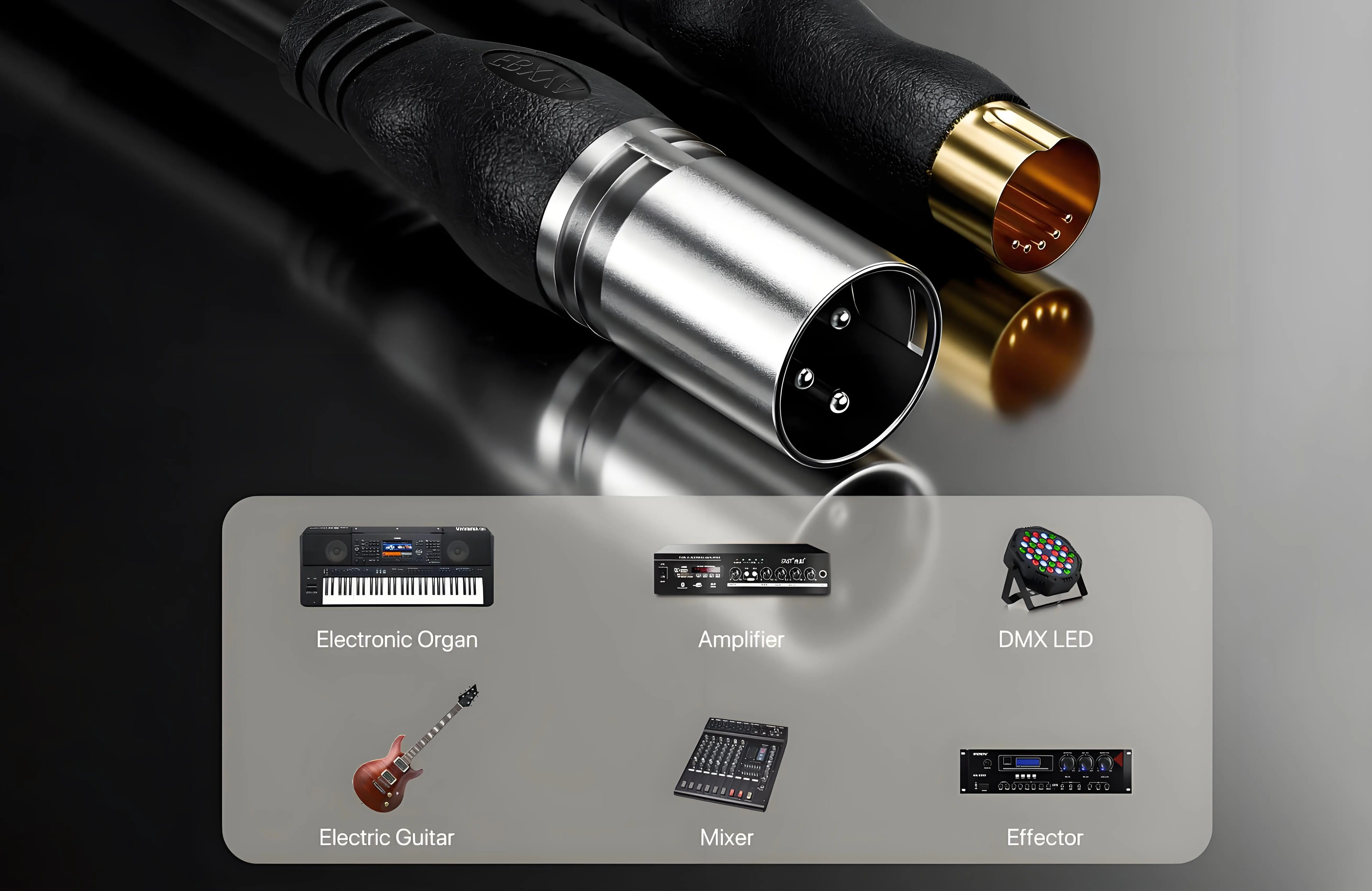
What is MIDI and Why Do We Need MIDI Cables?
MIDI (Musical Instrument Digital Interface) is an indispensable standard protocol in modern music creation. Its original intention was to solve the compatibility issues between electronic musical instruments from different manufacturers.
MIDI interfaces and cables allow musicians to:
- Interoperability across multiple brands: Keyboards, synthesizers, and computers from different brands can seamlessly connect using the MIDI protocol.
- Transmitting control information, not audio: MIDI cables don't transmit sound, but rather "commands" such as notes, rhythm, velocity, and control parameters.
- Expandability and control: A keyboard can not only play its own sounds but also control external sound modules, effects processors, or software instruments.
This makes MIDI an essential tool for musicians and audio engineers.
How does a MIDI Cable work?
A standard MIDI cable uses a 5-pin DIN connector to transmit data via specific pins. Depending on their function, the connectors can be divided into the following types:
1. MIDI IN
Receives MIDI signals from other devices, such as a synthesizer, and receives performance information from a keyboard.
2. MIDI OUT
Transmits MIDI signals generated by this device, such as a keyboard sending performance data to a DAW or other sound module.
3. MIDI THRU
Forwards received MIDI signals intact to the next device, enabling cascaded control of multiple devices.
This design allows musicians to flexibly build device networks to meet the needs of studio production, live performances, and multi-device linkage.
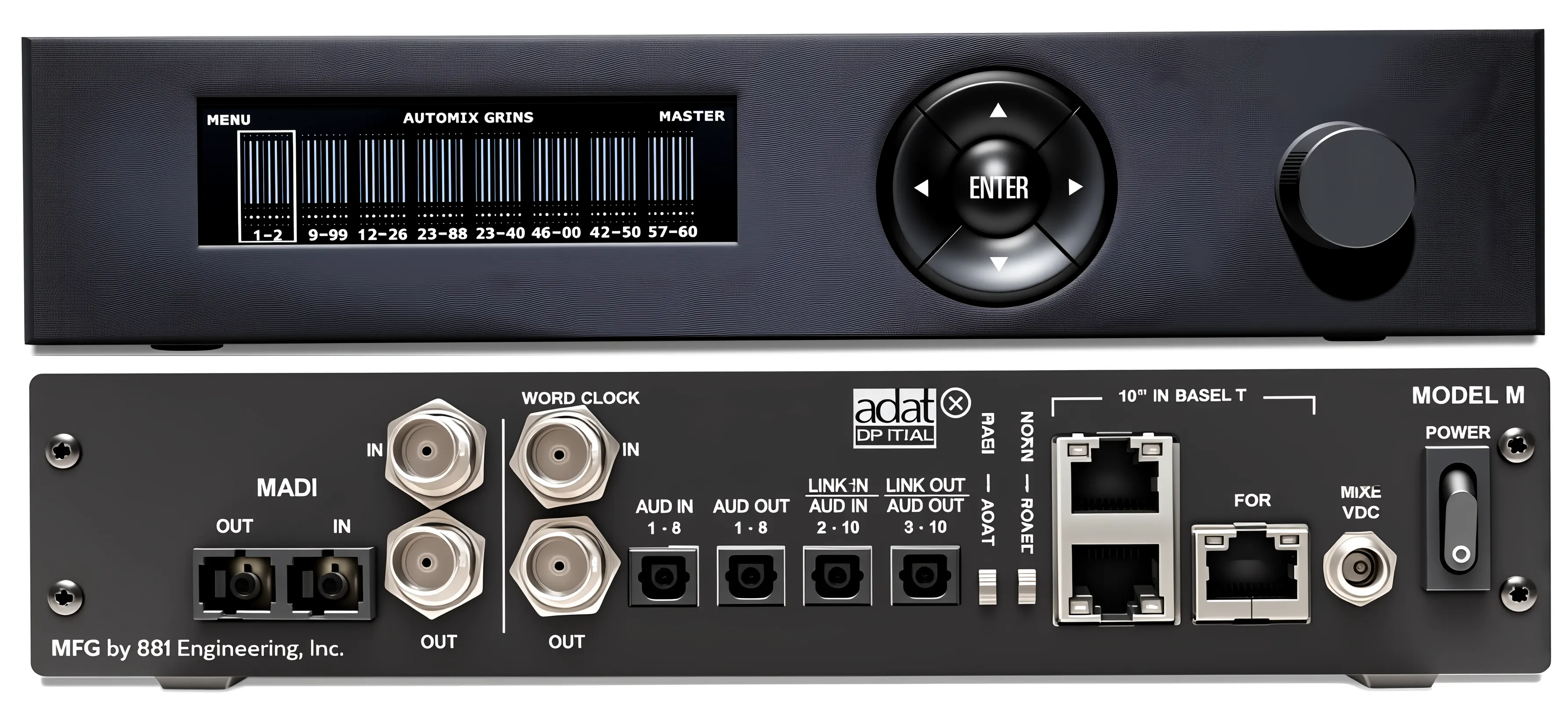
What are the characteristics of a MIDI Cable?
High Compatibility: Almost all modern electronic instruments support the MIDI protocol, allowing for quick connection with a single cable.
Low Latency: MIDI signal transmission is fast, ensuring synchronization between your playing movements and sound triggers.
Versatile Control: Beyond notes, you can also control volume, effects parameters, filters, and more.
Stable and Durable: The high-quality MIDI cable features a shielded design to reduce interference and ensure a stable and smooth performance.
What are the benefits of custom MIDI cables?
Common MIDI cables on the market can generally meet general needs, but standard cables may not be fully adequate in some specific scenarios:
- Stage performances require longer, stronger cables to resist interference and bending.
- Industrial or scientific research projects require specialized connectors or non-standard cable lengths.
- Musical instrument manufacturers require bulk custom MIDI cables to ensure compatibility with their equipment.
In these cases, custom MIDI cables are the best option.
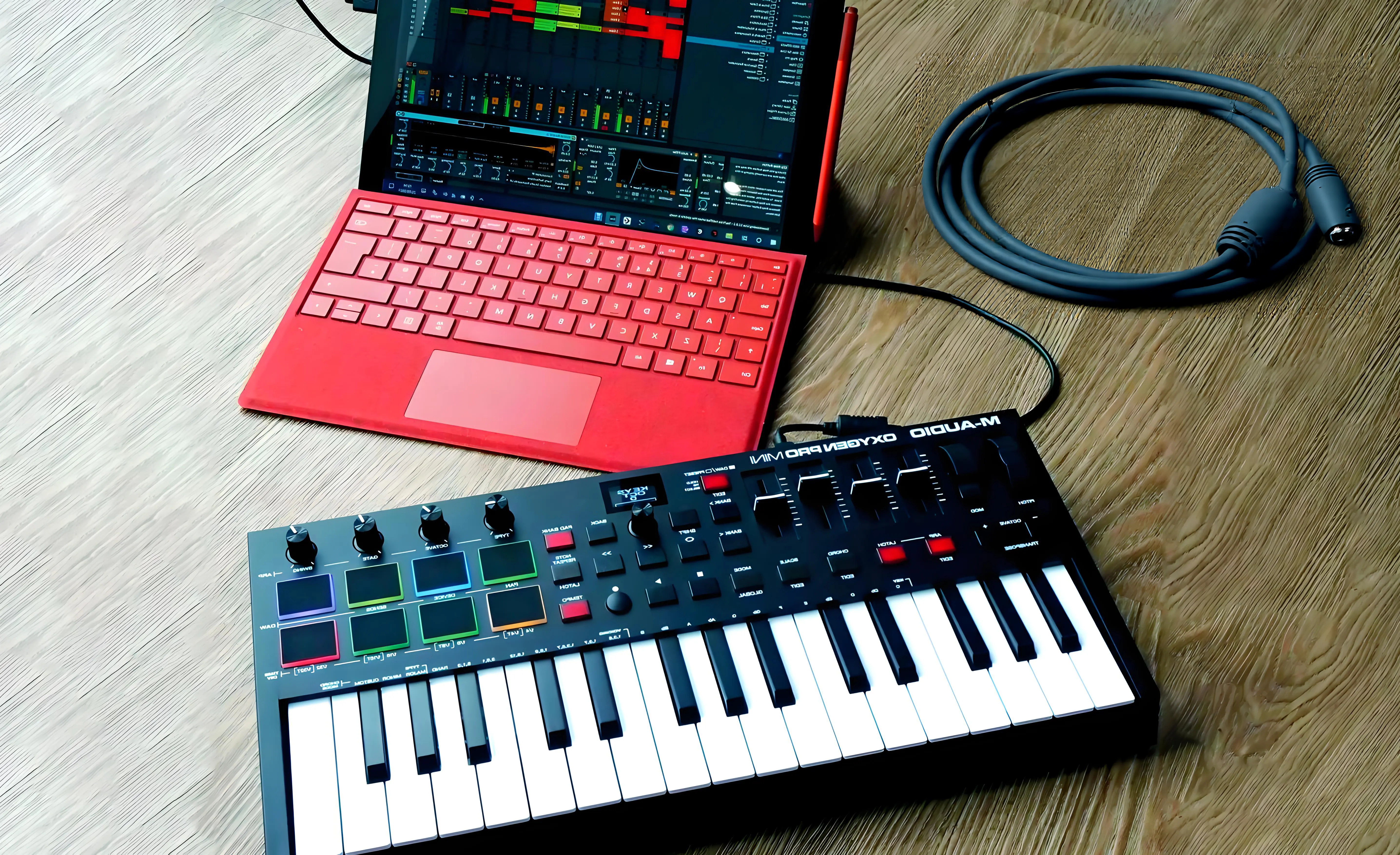
What is the solution for the wiring harness customization factory?
At Kaweei, our custom cable manufacturer, we not only offer standard MIDI cables, but also provide customized services tailored to your needs:
- Customized lengths: From 0.5 meters to 10 meters or even longer, to meet diverse scenarios.
- Customized connectors: Supporting 5-pin DIN, TRS, USB-MIDI adapters, and more.
- High durability: Thickened shielding and a flex-resistant outer jacket ensure long-term stability.
- Flexible supply: Supporting small-batch, diversified orders, suitable for both individual studios and large equipment manufacturers.
Leveraging years of experience in cable harness production, Kaweei provides customers with reliable custom MIDI cable solutions.
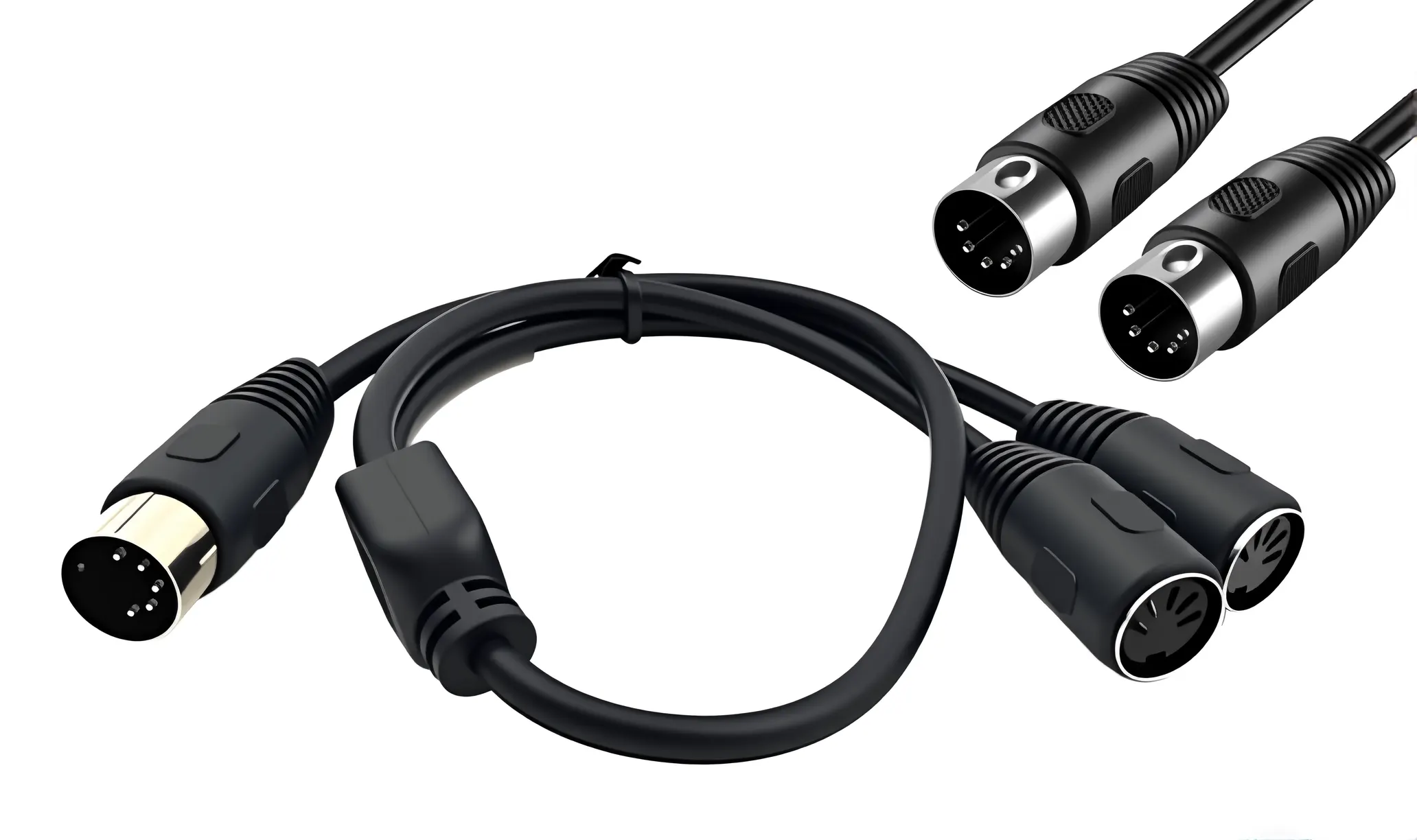
Frequently Asked Questions (FAQ)
Q1: What is a MIDI cable used for?
A: It connects electronic instruments, synthesizers, drum machines, and computers, transmitting performance instructions, not audio signals.
Q2: Can a MIDI cable transmit audio?
A: No. MIDI cables only transmit data (control information), not sound. If audio transmission is required, use an audio cable or USB interface.
Q3: What are the differences between MIDI IN, OUT, and THRU?
A:
- MIDI IN: Receives MIDI signals from external devices.
- MIDI OUT: Transmits MIDI signals from the device itself.
- MIDI THRU: Relays received MIDI signals, often used for connecting multiple devices.
Q4: What is the maximum length of a MIDI cable?
A: A maximum of 5 meters is recommended. For longer distances, high-quality shielded cable or a USB-MIDI alternative should be used.
Q5: How can I choose a custom MIDI cable?
A: We can select the length, connector, and shielding performance based on your needs. If you require specialized customization, Kaweei's custom cable harness factory can provide you with the right solution.
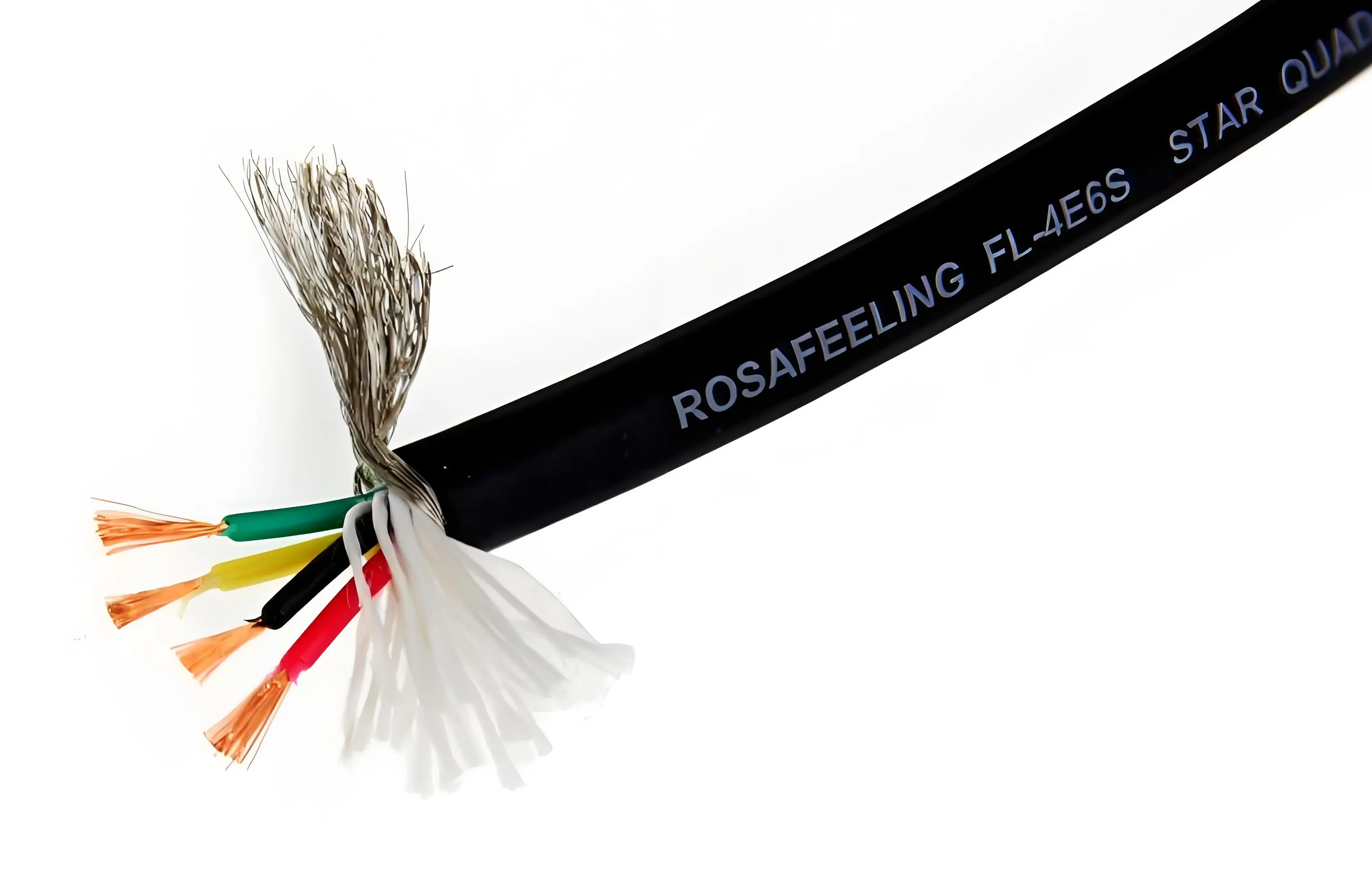
In conclusion
MIDI cables are at the heart of modern music creation and device communication. They not only enhance compatibility between instruments but also empower musicians with greater creative freedom. For users with specialized needs, custom MIDI cables offer a more stable and personalized experience.
If you're looking for reliable custom solutions, Kaweei Custom Harness Factory is a trusted partner, helping you realize your music and projects more efficiently.



